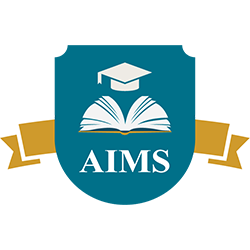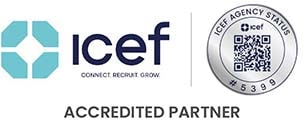Want to study in Denmark? Denmark, known for its high-quality education system and vibrant cultural landscape, beckons international students seeking top-notch academic opportunities in a welcoming environment. However, navigating the requirements to study in Denmark can take time and effort. Understanding the overall requirements to study in Denmark will help you to make your application process smooth.
This guide aims to elucidate the comprehensive prerequisites, and application procedures for prospective international students aspiring to pursue education in Denmark.
What are the benefits of studying in Denmark?
Studying in Denmark offers a multitude of benefits for international students, making it an attractive destination for higher education:
- High-Quality Education: Denmark is renowned for its excellent education system, characterized by high academic standards, modern teaching methods, and innovative approaches to learning. Universities and institutions in Denmark consistently rank high in global education rankings.
- Wide Range of Programs: Danish institutions offer a diverse array of programs across various fields, providing students with ample choices to pursue their academic interests and specialize in their preferred disciplines.
- Innovative Teaching Methods: The Danish education system emphasizes a student-centered approach, encouraging critical thinking, creativity, and independent learning. Collaborative projects, interactive classrooms, and practical experiences are integral to the curriculum.
- Strong Research Environment: Denmark is a hub for cutting-edge research and innovation. Students have access to state-of-the-art facilities and opportunities to engage in research projects alongside esteemed faculty members.
- International Environment: Denmark is a multicultural society that warmly welcomes international students. The learning environment is diverse, fostering cross-cultural interactions and global perspectives, which can be invaluable for personal growth and networking.
Work Opportunities: Denmark offers attractive post-study work options for international graduates. Students can extend their stay after graduation to seek employment opportunities or participate in internship programs, benefiting from the country’s strong economy and progressive work environment.
What are the requirements to study in Denmark?
As an international student, you need to fulfill several key requirements to study in Denmark. Such as:
- Academic requirements
- English requirements
- Admission requirements
- Financial requirements
- Visa application requirements
Academic requirements to study in Denmark
The academic requirements to study in Denmark vary depending on the level of study. A secondary school leaving certificate or an equivalent is typically required for Bachelor’s programs, along with specific subject-related qualifications for certain courses. Master’s programs necessitate a relevant Bachelor’s degree or its equivalent. Since different universities require different grades your eligibility should match your preferred university requirements.
English requirements to study in Denmark
Every higher education program requires a high standard of English proficiency.
Applicants to teach undergraduate and postgraduate programs must have a minimum English proficiency comparable to ‘English B’ in the Danish upper secondary school. Some programs require ‘English A’, which is higher than ‘English B’.
To prove satisfactory English language proficiency, the language tests TOEFL, IELTS, and Cambridge ESOL examinations (CAE) are often used. Here is the list of English requirements to study in Denmark.
| Level of English | IELTS | TOEFL | CAE |
| English A | Minimum 7.0 | test scores in the ranges of 587-610 (paper-based), 240-253 (computer-based test), or 94-101 (internet-based test) | Certificate of Proficiency (CPE) |
| English B | Minimum 6.5 | test scores in the ranges of 550-583 (paper-based), 213-237 (computer-based test), or 79-93 (internet-based test) | Certificate in Advanced English (CAE) |
Financial requirements to study in Denmark for international students
Denmark is an expensive country. However, the standard of living is also among the highest in the world. However, if you are sensible, follow local habits, and economize, life in Denmark shouldn’t blow your budget. There are no fixed financial requirements to study in Denmark.
All international students are suggested to open a Danish bank account. To open a bank account, you must first obtain a Danish CPR number (i.e. ID number). You should bring enough money or a credit card for the first few weeks of your stay in Denmark.
For example, you will need enough cash to pay the rent, food, and deposit on your accommodation as well as to buy housewares for your new room. Make sure you are able to use your credit card in Denmark and check your cash withdrawal limit.
Admission requirements to study in Denmark for international students
Admission requirements to study in Denmark for international students can vary depending on the university, level of study, and specific program. However, here are some general guidelines:
- A formal letter of admission
- Previous academic details
- A valid passport
- Passport-style photos
- Completed ST1 form
- Proof of English or Danish language proficiency
- Proof of finances
- Details of your living arrangements
- Receipt of application fee payment
- Proof of travel insurance
Visa application requirements to study in Denmark
As an international student, you’ll typically need to apply for a residence permit and not a visa if your study program exceeds three months. Here are the general steps for residence permit requirements to study in Denmark:
- A valid admission letter from a Danish university or educational institution.
- Proof of sufficient funds to support yourself during your stay in Denmark. This could be in the form of a bank statement or scholarship confirmation.
- Comprehensive health insurance coverage.
- A valid passport.
- Copies of transcripts and diplomas.
- Proof of your accommodation in Denmark.
- Recent passport-sized photographs.
- Payment of the required application fee.
Final words
Understanding the requirements to study in Denmark is pivotal for a successful application process. From academic qualifications to visa procedures, this comprehensive guide equips aspiring international students with the essential knowledge needed to embark on their educational journey in Denmark. For further specifics, you are advised to contact AIMS Education for better guidance.
FAQ
What are the tuition fees for international students in Denmark?
Ans: For full-degree students in Denmark range is between Euro 6,000-16,000 (DKK 45,000-120,000).
Can international students work in Denmark while studying?
Ans: Yes, international students are allowed to work part-time, up to 20 hours per week during their studies.
Is it necessary to learn Danish before studying in Denmark?
Ans: Every higher education program in Denmark requires a high standard of English proficiency. To prove satisfactory English language proficiency, the language tests TOEFL, IELTS, and Cambridge ESOL examinations (CAE) are often used.
Is IELTS required for Denmark?
Ans: To prove satisfactory English language proficiency, the language tests TOEFL, IELTS, and Cambridge ESOL examinations (CAE) are often used.
How much bank balance is required for a Denmark student visa?
Ans: All international students are suggested to open a Danish bank account. To open a bank account, you must first obtain a Danish CPR number (i.e. ID number). You should bring enough money or a credit card for the first few weeks of your stay in Denmark.
What is the lowest IELTS requirement to study in Denmark?
Ans: In undergraduate and postgraduate programs you must have a minimum English proficiency comparable to ‘English B’ that is equivalent to IELTS 6.5.

AIMS Education is a reliable study abroad consultancy firm guiding students in selecting courses, and universities and helping them apply and secure their student visas. Also, AIMS Education is a British Council-certified agent and is listed on the British Council’s global agent list. We provide student recruitment services in the UK, USA, Australia, Canada, Hungary, Poland, Denmark, Malta, Finland, France, Germany, Austria, Spain, Sweden, Malaysia and UAE. Not only this but also AIMS Education is an ICEF Accredited Agent, UCAS Registered Centre, Expatrio Partner, PTE and Language Cert Partner. With an almost 98% student satisfaction rate and 10+ global awards, AIMS Education is now a name of trust among study abroad aspirants.









